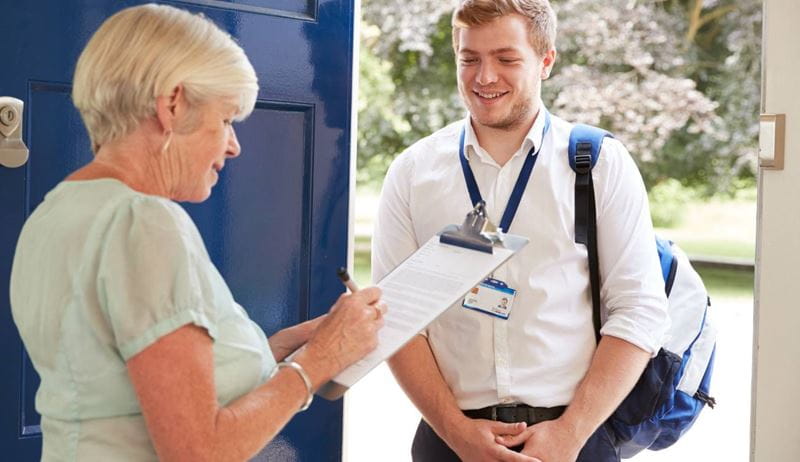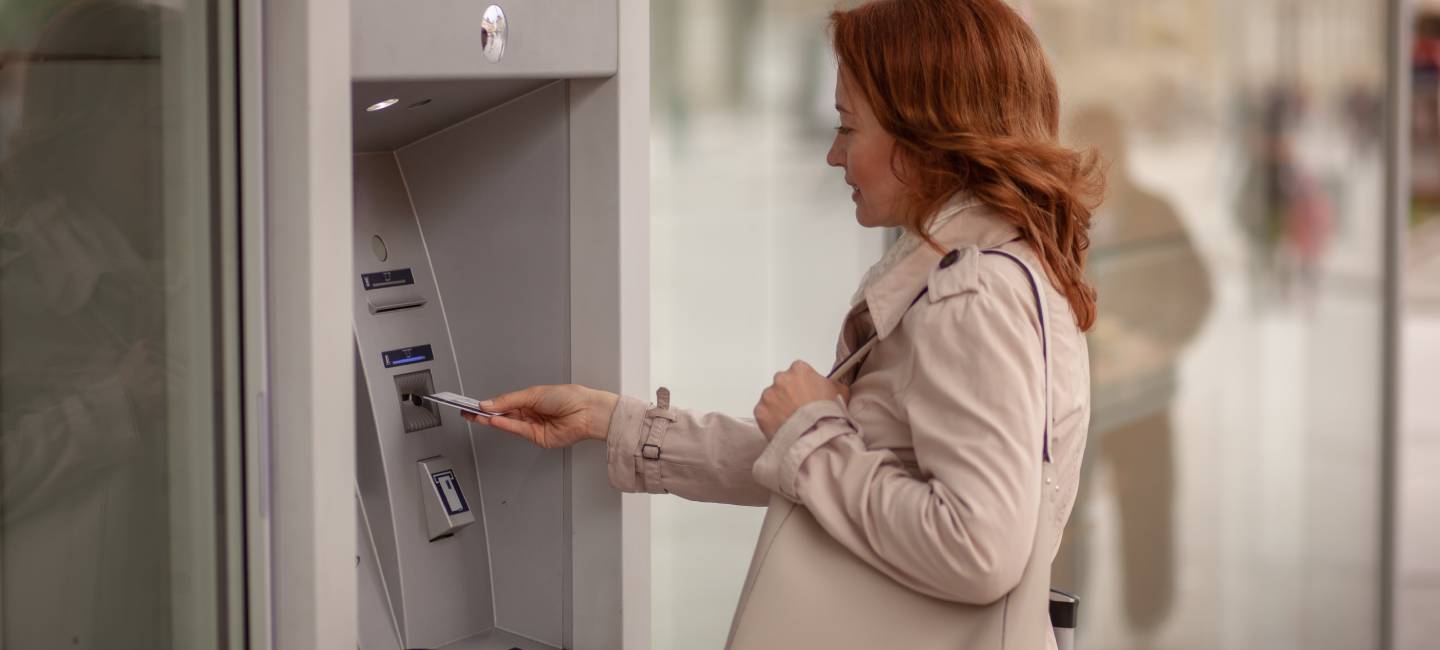
This article is for general guidance only and is not financial or professional advice. Any links are for your own information, and do not constitute any form of recommendation by Saga. You should not solely rely on this information to make any decisions, and consider seeking independent professional advice. All figures and information in this article are correct at the time of publishing, but laws, entitlements, tax treatments and allowances may change in the future.
With energy prices remaining a major household expense, scammers are increasingly exploiting concerns to steal money and personal information. And the fraudsters are constantly finding new ways to trick you.
Here we look at some of the most common energy scams and explain how you can avoid them.
What’s on this page?
Energy scams provide a way for criminals to access your personal or financial details to steal your money, using your gas and electricity bills as their hook. Or they might attempt to rip you off by selling dodgy products that ‘promise’ to cut your bills.
Like other scams they often look genuine and can be hard to spot.
Criminals may impersonate the energy regulator, Ofgem, for example, or they may turn up at your door selling you ‘energy-efficient’ home improvements.
The ultimate goal of these con artists is to get their hands on your money – either by persuading you to sign up to a dubious deal or by hacking into your personal or financial information.
Be wary of unsolicited calls offering energy deals. Cold callers may offer you deals that are genuine rather than outright scams, but they will often be overpriced and fail to meet basic customer service standards.
Consumer expert Martyn James explains: “Many unethical businesses will cold call people and try to get them to change energy providers or sign up to switching services that regularly put you on to the ‘best’ deals.
“While not total scams, there are endless complaints about these businesses and the commission they take from suppliers for locking people into long and expensive contracts.”
Energy scams change regularly. Here are some of the most popular current scams:
A scammer may tell you that your home is not safe to live in and changes are needed straight away. Or they could offer to make energy-efficiency improvements to lower your energy bills. Homes with solar panels are often targeted in this way, with the scammer telling the homeowner they must sign up to a maintenance contract.
Criminals often impersonate Ofgem when contacting potential victims. This may be a letter, an email, a text, or a knock on the door. The messaging varies but it often suggests that the person is due a refund on their energy bill or that something is wrong with the personal information held by Ofgem.
Prepayment meter scams work by a criminal offering a discount on your energy bills, by using a cloned prepayment meter key. The victim buys the cheaper key, believing they can then use it in in return for a cheap energy deal. But the key is fake and the victim will still owe their energy provider for the energy used – so they end up paying out twice.
During the cost-of-living crisis the government gave out various rebates, including a £400 energy rebate under the Energy Bills Support Scheme. Scammers use a variety of different methods to send out false messages promising another rebate. This is often through a text message or email. Once the recipient opens the email and clicks on a link within it, they may end up giving their personal details to criminals, or having malicious software downloaded onto their phone.
The Energy Bills Support Scheme has ended. Any unsolicited message offering an energy rebate now is almost certainly a scam.
If someone knocks on your door and tells you they need to take your meter reading, or calls you up to ask about a reading, this is likely a scam. Criminals use this tactic to trick people into parting with their personal information, or to access their home.
Genuine meter readers will have photographic ID and will let you call your energy provider to verify who they are. Never use a phone number provided by the doorstep caller to verify their identity. Always find the official number for your energy supplier from your bill or their official website.
Criminals may impersonate your energy provider, or another company, to trick you into accepting a smart meter installation. They may request an upfront fee or your personal details.
Smart meters allow you to automatically send your energy readings to your supplier without the need for manual readings, but they should only be installed by a qualified and accredited meter installer which has been pre-arranged through your supplier.
Another type of smart meter scam is text messages or a doorstep caller claiming that your smart meter is not working properly. They may offer to investigate it and/or tell you that you need to pay for your energy for the time the meter has not been working properly. Contact your energy supplier directly (using details from your bill or the official website) if you receive communications like this.
Scammers may set up fake energy comparison websites, either to harvest personal data or steer users towards poor-value deals. Energy comparison sites can be helpful, so you don’t need to avoid them completely, but make sure you use a reputable one. Look for the Ofgem Confidence Code logo, which means that the site has signed up to Ofgem's voluntary code of practice and will give unbiased comparisons.

Energy scammers are good at what they do, and that’s why it’s often hard to tell a scam from a genuine offer. Look out for these signs that something might be a scam:
Is it too good to be true? Cheaper energy bills, a one-off cash rebate, free or discounted energy-efficiency products which seem a lot better than what’s on offer from your genuine provider? All of these are signs that something is at best a rip-off, or at worst a scam.
Has someone turned up on your doorstep when you weren’t expecting them? There are energy-saving grants available, but you have to apply for them. Unless you’ve already arranged for some work to be done, if someone turns up on your doorstep claiming they’re from an energy-saving scheme it’s likely to be a scam.
Read more about grants for energy-saving improvements.
Are you being asked for sensitive information? Genuine companies will never ask for PINs, passwords or full bank details. If you call your bank, they may ask for some details (such as your address and account number) to confirm your identity, but you should be very wary if you are being asked for these details via an unsolicited phone call, email or at the door.
Are there spelling or grammar mistakes? Or does the email address or website address look odd? These are all red flags for scams.
Does the offer seem rushed or are you being pressured to do something? Scammers operate by panicking people into making rash decisions, for example handing over cash for a ‘bargain’ meter key that doesn’t actually work.
How are you being asked to pay? Be wary if you’re asked to pay cash, by wire transfer or even in cryptocurrency. Scammers frequently request forms of payment which aren’t traceable.
Joanna O’Loan, knowledge manager at Energy Saving Trust, says: “A reputable organisation will never pressure you to stay on the phone. If you’re unsure about the legitimacy of a call, hang up, and contact the organisation directly using a phone number from their official website.
“If you’re being offered an energy-efficiency improvement for your home, be cautious of high-pressure sales tactics. Reputable installers will give you time to review their quote and compare it with others.”
Ask Silver is a free tool which uses artificial intelligence (AI) to help spot scams. You sign up and then if you receive a suspicious email, leaflet or website, you can send it to Ask Silver which will look for signs that could be a scam and let you know the results of its assessment. It can also report a scam attempt to the relevant authorities. Ask Silver has also recently teamed up with Metro Bank to promote its service to Metro Bank customers.
If you feel unsure about an energy offer, you can contact your provider to check if the deal is genuine or not. Use the phone number provided on its official website or your energy bills. If the deal is from a different provider, also contact the provider (using details on its official website). If it’s not a provider you’re familiar with, you can check its customer service ratings on the Citizens Advice website.
If someone arrives at your door unexpectedly, always ask for identification. Don't be afraid to close the door while you verify their credentials by calling the company they claim to represent (using an official number).
O’Loan says: “For measures funded by your local authority or council, the representative should have proper identification. You can always contact your council directly to confirm their legitimacy.
“If the offer is under the Energy Company Obligation (ECO) scheme, the installer must be a TrustMark-registered business. TrustMark-registered installers will have a registration number, and you can follow this up on the TrustMark website to check.”
Staying vigilant, questioning unexpected offers, and always checking someone is who they say they are – these your strongest defences against energy scams.
If you think you have been a victim of an energy scam, report it to your bank and Action Fraud immediately.



Find out how to protect yourself from scams that promise big returns but are really just targeting your money.

Discover the methods criminals use to steal your card details and cash, and learn essential steps to protect yourself.
.jpg?la=en&h=354&w=616&hash=2122F5B514187339858A8874A21EB345)
.jpg?la=en&h=354&w=616&hash=5B2DDC7FA6F8687D79D901D435A709DA)